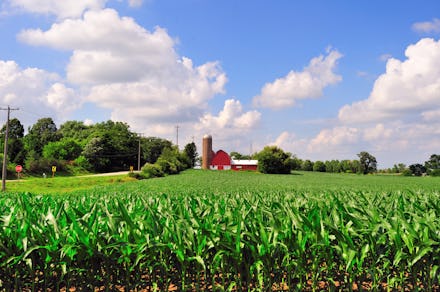One of The Planet's Most Important Species Is About to Disappear for Good

Monarch butterflies: In the mid 1990s, enough of these majestic creatures circled the American skyline to cover nearly 40 football fields. Today, even if they stretched, they'd cover only one.
The monarch's staggering 90% decline over the past two decades is equivalent to "losing every living person in the United States" minus "Florida and Ohio." So earlier this week, conservationists called on the federal government to list them as a threatened species — an official designation that would allow the creation of protected areas for the creatures to rebuild their population.
Who cares? You should.
While it might sound like a great idea, saying goodbye to bugs would wreck havoc on the planet. Not only do monarchs break plants down into organic matter and disperse important seeds, they're also a major food source for the world's bird populations.
Plus, whatever is killing the butterflies is also killing bees, on which nearly 90% of the world's plants and 100 American crops rely for survival. By some estimates, the human race wouldn't make it past 2018 if bees disappeared tomorrow.
Why are they disappearing? Scientists suspect two pesticides are being overused.
One of them — an insecticide — takes out honeybees by damaging their learning and memory centers, making it impossible for them to locate pollen or find their way back to the hive. The other — an herbicide — kills weeds, enabling American and European farmers to grow an unprecedented number of soy and corn crops.
Unfortunately, one of those weeds is milkweed, the single plant on which monarch butterflies can lay their eggs.
In the past, farmers spared bunches of milkweed by using herbicides sparingly. Over the last two decades, however, nearly 80% of the milkweed plants across the American midwest — where most of the country's corn and soy plants are cultivated — disappeared.
What can be done? Landowners and farmers can start planting milkweed to give the monarch more places to lay their eggs. Using less milkweed-killing herbicide would help as well, but applying smaller amounts of pesticide would mean a large-scale change in most modern farming practices, from sewing huge plots of land with a range of different seeds to growing different plants from season to season.
Scientists recently invented a game-changing alternative to the deadly neonicotinoid pesticide. Because the new toxin takes out most pests but spares honeybees, it could bring the important animals back from the brink of extinction.
Perhaps an herbicide that spares the monarch's most important plant is on the horizon.